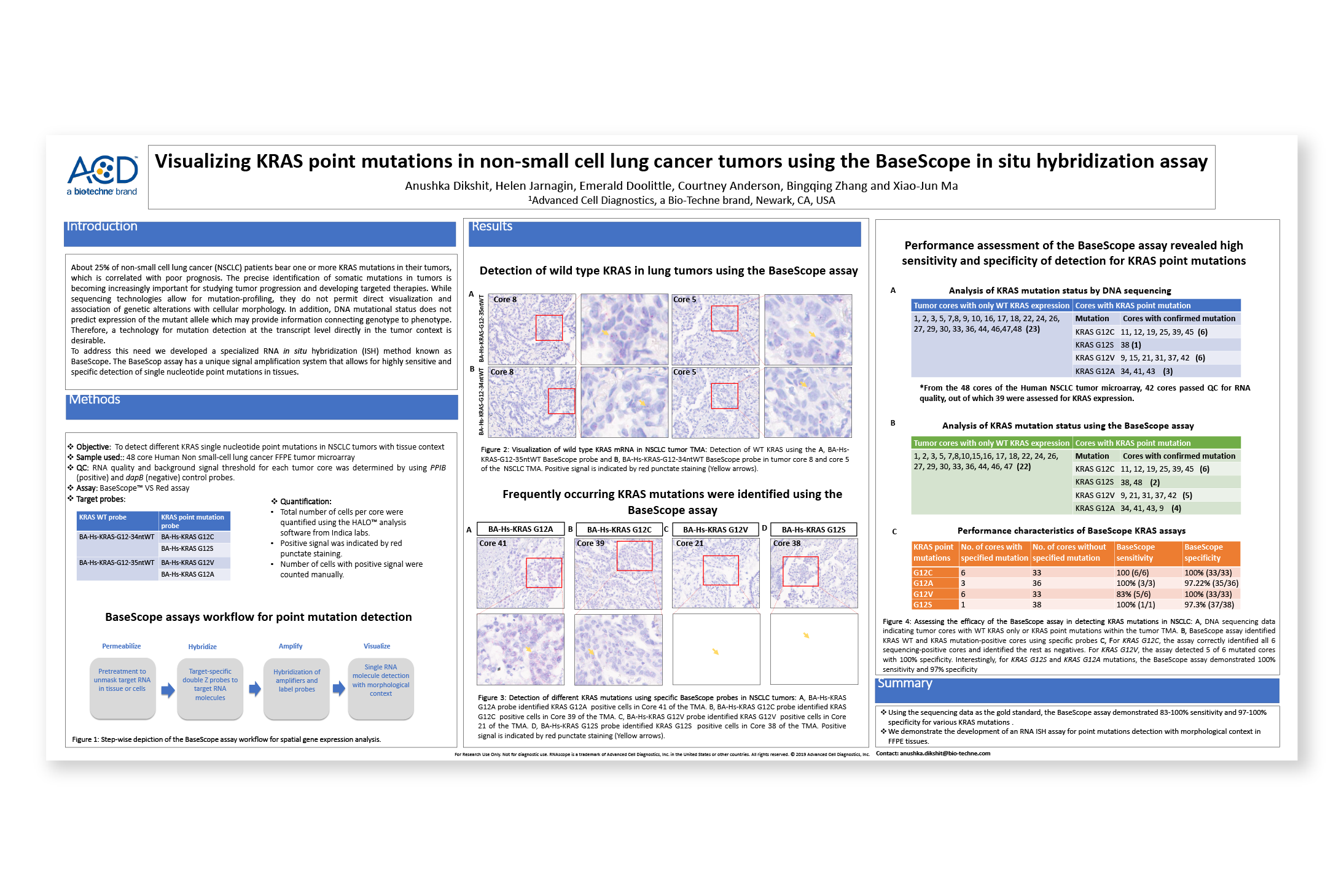Visualizing KRAS point mutations in non-small cell lung cancer tumors using the BaseScope™ in situ hybridization assay
Scientific Meeting PostersAbout 25% of non-small cell lung cancer (NSCLC) patients bear one or more KRAS mutations in their tumors, which is correlated with poor prognosis. The precise identification of somatic mutations in tumors is becoming increasingly important for studying tumor progression and developing targeted therapies. While sequencing technologies allow for mutation profiling, they do not permit direct visualization and association of genetic alterations with cellular morphology. In addition, DNA mutational status does not predict expression of the mutant allele which may provide information connecting genotype to phenotype. Therefore, a technology for mutation detection at the transcript level directly in the tumor context is desirable.
To address this need we developed a specialized RNA in situ hybridization (ISH) method known as BaseScope. The BaseScop assay has a unique signal amplification system that allows for highly sensitive and specific detection of single nucleotide point mutations in tissues.
